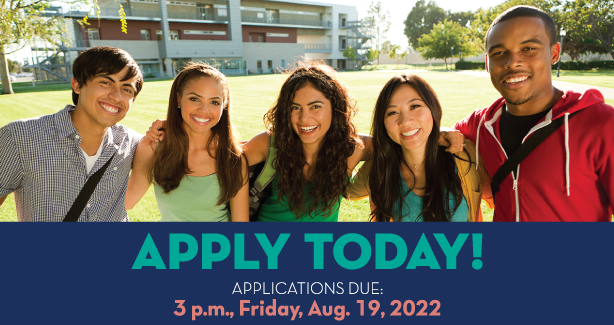
There are many options for college grants for females. Some are merit-based grants that reward talent, community service, and academic performance. Other types of grants are purely for women who need financial assistance. A few grant providers offer a special fund that is only for women who belong to certain groups. These include single mothers, battered women, or women who put off obtaining their degree. Additionally, grant funds can be made available to minority women who delay obtaining their degrees for personal reasons.
Newcombe Scholarships For Mature Students
The Charlotte W. Newcombe Foundation awarded CUNY School of Professional Studies a $50,000 grant to help establish the Newcombe Scholarships of Mature Students. These scholarships will provide assistance to adults who have completed at least 60 credits at an accredited institution. These scholarships help to fill an unmet need in scholarships for mature students. They are often for women who have a full-time job and are also juggling their family responsibilities. This scholarship will allow these students to reach their educational and career goals, without limiting other financial aid.

Jeanette Rankin Foundation Women's Education Fund
Jeanette Rankin Foundation Women's Scholarship Fund is a financial aid program that provides scholarships and financial assistance to low-income females who are pursuing post-secondary education. These scholarships can be used towards an associate's and bachelor's degrees. You must be an American citizen, over 35, and intend to pursue a post-secondary education.
Patsy Takemoto Mink Foundation
Patsy Takemoto Mink Education Foundation offers grants for college to low income women with children. This foundation provides education assistance through its Education Support Awards. They provide up $5,000 to help with college-related expenses. The candidates must be females at least 17 and have a low income. Candidates must be currently pursuing a degree (or an associate's) degree. Once recipients have been chosen, they will be notified. The list will then be published.
Schlumberger Foundation
The Schlumberger Foundation has established a Faculty for the Future Fellowships for Women program, which will fund women studying advanced STEM degrees in emerging economies. These fellowships provide fully funded Master's degrees, and successful applicants will join a multidisciplinary R&D team. Successful applicants will be able to continue their graduate studies and pursue a technical Master’s degree after two months of acclimatization to Sandia's culture. After graduation, applicants will be guaranteed a job in Sandia's technical staff.

Regent's Healthcare Scholarship in Medicine and Dentistry
New York State Education Department offers a Regent's Health Care Scholarship to Medicine and Dentistry for students who want to pursue a career in medicine and dentistry. The scholarship includes a combination of loan, tuition waiver, fellowship, loan, and stipend. Candidates must have strong academic records and a passion for improving society. You will also be eligible for a VISA Prepaid Cards.
FAQ
Is it better to be a specialist in one subject than in another?
Many students opt to specialize in one area (e.g. English History, Math) and not branch into many other subjects. It isn't necessary to specialize in every subject. For example, if you're considering becoming a physician, you could choose to specialize in either internal medicine or surgery. You could also choose to specialize in family practice, pediatrics, gerontology or neurology. If you're considering a business career, you could concentrate on marketing, management, finance, human resources, operations research, or sales. You have the freedom to choose.
How long should I prepare for college?
The amount of time spent preparing for college depends on how much you plan to devote to your studies. If you plan to attend college immediately upon completing high school, you should start taking some college preparation courses now. You don't have to plan if you expect to be away for several years before going to college.
Your parents and teachers should be involved in your discussions. They may recommend specific courses. It's important to keep track and record the grades received in each course. You'll be able to see exactly what you need next year.
How much time should I spend studying each semester?
The time it takes to study depends on many factors.
Some schools may also require that you take certain classes every year. This means that you won't always be able take the same courses every semester. Your advisor can tell you what courses you must take each semester.
What is an alternative school?
Alternative schools are designed to provide students with learning disabilities with access to education through the support of qualified teachers who can understand their needs.
Alternative schools are designed to give children with special education needs the chance to learn in a normal classroom setting.
Additional support is available if needed.
An alternative school isn't only for those who have been expelled from mainstream schools.
They are open for all children, regardless their ability or disability.
Statistics
- Data from the Department of Education reveal that, among 2008 college graduates, 92.8 percent of humanities majors have voted at least once since finishing school. (bostonreview.net)
- They are more likely to graduate high school (25%) and finish college (116%). (habitatbroward.org)
- In most developed countries, a high proportion of the population (up to 50%) now enters higher education at some time in their lives. (en.wikipedia.org)
- Globally, in 2008, around 89% of children aged six to twelve were enrolled in primary education, and this proportion was rising. (en.wikipedia.org)
- Among STEM majors, that number is 83.5 percent. (bostonreview.net)
External Links
How To
What can I do to become a teacher in my area?
Teaching jobs are available in public elementary schools, private elementary schools, public middle schools, private middle schools, public secondary schools, private secondary schools, charter schools, private and parochial (Catholic) schools, public and private (non-religious) daycare centers, and other settings.
To become a teacher, you must first complete a bachelor's degree program at one of the following:
-
A four-year university or college
-
A degree program for associates
-
There are some two-year community colleges programs
-
Combinations of these three types programs
To be eligible for teacher certification, applicants must satisfy state requirements. These include passing standardized test and having a probationary period.
Many states require applicants to pass the Praxis II test. This test measures knowledge in reading and writing as well math skills.
A lot of states also require applicants to have a specialized licence before they can be certified to teach.
These licenses are issued by the states' boards of education.
Some states grant licenses without the need for additional testing. In these cases, the applicant should contact the board of education in his or her state to determine if this is true in your area.
Some states don't grant licenses to applicants who haven't completed a masters degree program.
Some states permit individuals to apply directly at the state board or education for licensure.
Licenses come in a variety of prices, lengths, and required coursework.
For instance, some states only require a high-school diploma, while others require at least a bachelor's degree.
Some states have specific requirements for training, such a literacy or child-development course.
Some states require that candidates receive a master's degree before becoming licensed.
Many states require teachers to provide information about their previous jobs when applying for certification.
If you were a member of another profession, it might be a good idea to mention this on your application.
However, the majority of states will accept any previous work experience regardless of what job it was.
You might want to list your job title, previous position, and years of experience.
Potential employers often find this information useful.
It shows them that you have relevant skills and experiences.
You may have gained valuable work experience and new skills while working.
Future employers can view your resume.